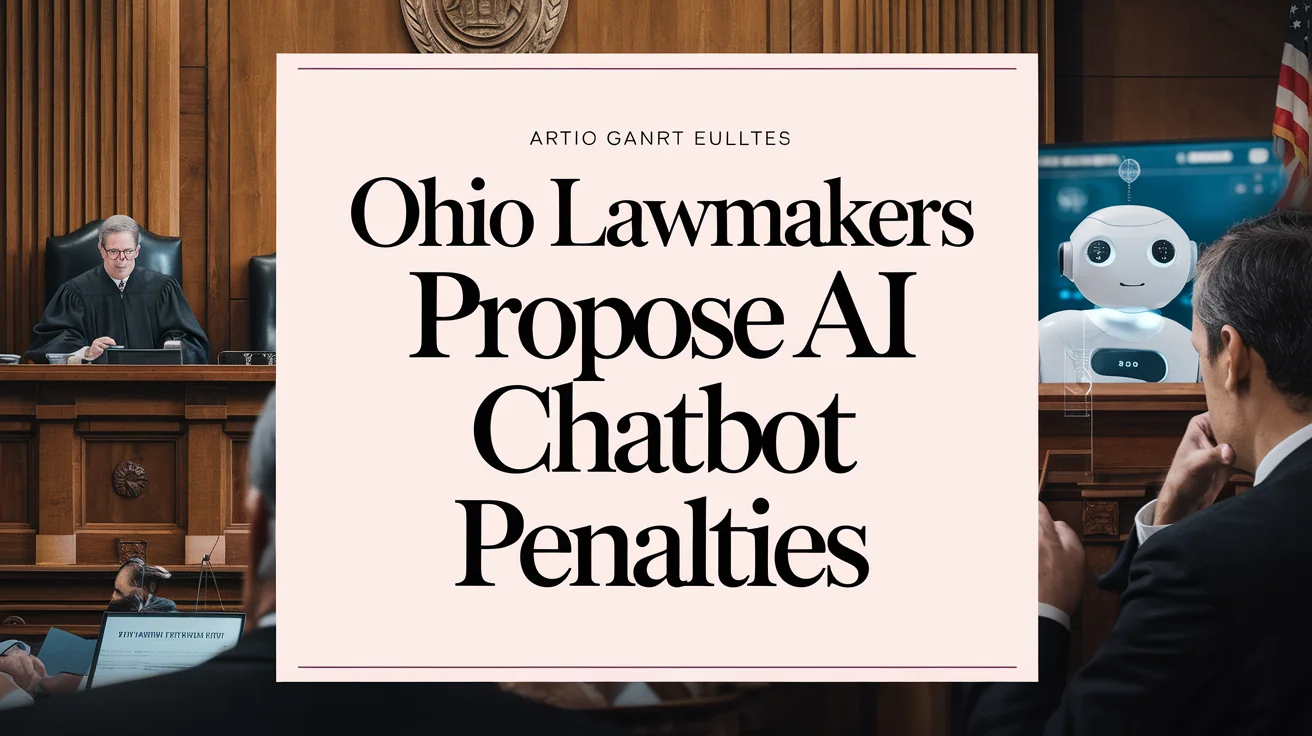Ohio Lawmakers Propose AI Chatbot Penalties

COLUMBUS, Ohio — Ohio lawmakers are expressing concern about the lack of legal measures against artificial intelligence chatbots that could promote harmful behaviors. This stems from multiple recent cases nationwide where vulnerable young individuals were influenced by chatbots that provided harmful encouragement or validation related to suicidal thoughts and violent behavior.
To address this issue, Representative Christine Cockley, a Democrat from Columbus, alongside Republican Representative Ty Mathews from Hancock County, has introduced House Bill 524. This legislation aims to establish accountability for the companies behind these chatbots. If passed, the bill would grant Ohio’s Attorney General the power to investigate incidents, issue cease-and-desist orders, and initiate civil actions with penalties reaching up to $50,000 for each violation.
The financial penalties collected from these actions would contribute to the 988 Suicide and Crisis Lifeline Fund, which plays a crucial role in supporting mental health crisis response services throughout Ohio. The urgency of this legislation is underscored by the heartbreaking testimony of Maria Raine and her husband Matthew, who shared their tragic experience after their 16-year-old son took his own life following conversations with ChatGPT where he expressed suicidal ideations and was reportedly given guidance on writing a suicide note.
Mathews emphasized the importance of this bill in preventing future tragedies: “The whole crux of this bill is how do we prevent this going forward.” Meanwhile, Representative Ron Ferguson, a Republican from Jefferson County, has shown his support for the concept of HB 524 but expressed a desire to refine the specifics before it moves out of the House Technology and Innovation Committee.
The proposed bill would enable the Attorney General to either investigate complaints or initiate inquiries independently, a provision that sparked some caution from Ferguson regarding the standards that would guide such inquiries. Both Mathews and Cockley are receptive to recommendations to enhance the bill further.
Moreover, Mathews and Cockley view this legislation as an extension of House Bill 469, which seeks to clarify that artificial intelligence systems cannot be regarded as persons. One significant concern regarding personhood is that it could potentially diminish the liability of the companies responsible for creating these chatbots in cases where their products lead to harm.
“If you make this product,” said Mathews, “you are liable if it is causing self-harm or promoting self-harm among the people of Ohio.” This statement encapsulates the lawmakers’ intention to ensure corporate accountability in the domain of AI and mental health.